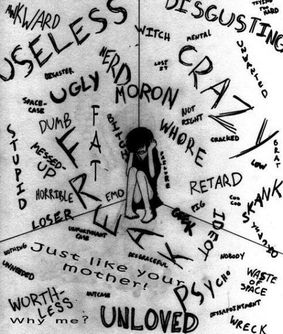|
This is a guest blog post by Scott A. Johnson, MA, LP. For more information, visit his website.
Understanding how the offender thinks is important. Assessing someone’s thoughts, morals, and values is not easy because we cannot see what is on the mind. However, the words we choose represent our beliefs, which in turn guide our behavioral choices. For example, if you believe in respecting women, then you will not belittle them, abuse them, and will never choose to rape them. In fact, you would never use terms that were derogatory, like slut and whore. So when anyone uses these derogatory terms, they hold derogatory and degrading thoughts about women. A word is never just a word, it represents the thoughts, morals, and beliefs of the individual. These thoughts, morals, and beliefs guide our choice of behavior. If you had derogatory beliefs about women, then it would be easy for you to abuse and rape. Think about the double standard society places on women. If a woman has more than one sex partner, we call her a whore or slut. If a man has more than one sexual partner, we call him a stud. This double standard condones the abuse and mistreatment of women. How is it possible that the same behavior has different values because of sex? Men use the terms "whore" and "slut" to justify abuse and rape. Really, have we come to justify abuse and rape so openly? Unfortunately, we have. Learning to respect women requires that we first believe that all women, not just one's own family, deserve respect. Second, stop using terms that objectify and degrade women. Lastly, understand the role that thoughts play and hold men accountable for using derogatory terms and for objectifying women without excusing their behavior as being “something they did not mean”. You mean what you say and you mean what you do, period. Scott A. Johnson, MA, LP, has a Master’s Degree in Counseling & Psychological Services from St. Mary’s College. He is a Licensed Psychologist (Minnesota), A Diplomate of the American Board of Psychological Specialties in Forensic Psychology, a member of the American College of Forensic Examiners International, and a member of the Society for Police and Criminal Psychology.
For over 27 years he has worked with abuse and sex offender populations as a forensic and counseling psychologist. He has taught at the graduate and undergraduate level and is an adjunct professor Florida Gulf Coast University (FGCU). For many years he has provided forensic consultation and trainings nationally to law enforcement addressing sexual predators and physical abusers.
0 Comments
Your comment will be posted after it is approved.
Leave a Reply. |


 RSS Feed
RSS Feed